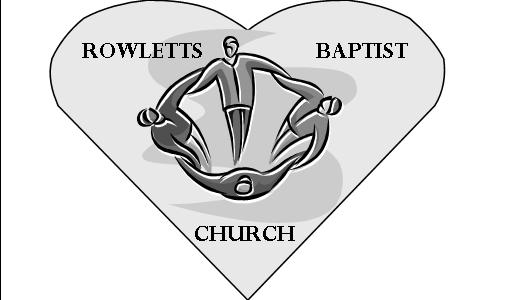"And they
continued steadfastly in the apostles' doctrine and fellowship, in the breaking
of bread, and in prayers.” Acts 2:42
“For this reason a
man shall leave his father and mother and be joined to his wife and the two
shall become one flesh." This is a great mystery, but I speak concerning
Christ and the church. Nevertheless let
each one of you in particular so love his own wife as himself and let the wife
see that she respects her husband.” Eph. 5:31-33
“But above all these
things put on love, which is the bond of perfection. And let the peace of God rule in your hearts,
to which also you were called in one body; and be thankful. Let the word of Christ dwell in you richly in
all wisdom, teaching and admonishing one another in psalms and hymns and
spiritual songs, singing with grace in your hearts to the Lord. And whatever you do in word or deed, do all in
the name of the Lord Jesus, giving thanks to God the Father through Him.” Col
3:14-17
In response to Bro. Dwayne’s preaching
from Wednesday night, much pondering has taken place about the diversity within
our church. A recent periodical from
9Marks ministries also speaks a lot about the guidance of scripture within our church
gatherings and worship; discussing the diversity of worship styles and service
within our world churches today. More
questions than answers are below, but would love to discuss with anyone.
Music in the church spans from exclusive
use of the Book of Psalms as worship music, to complete use of modern
repetitive choruses, or even secular songs; and use of hymns from the last
century somewhere in the middle. I want
to lean toward a strict regulative view, where the church only does things that
are authorized in scripture, yet there are many areas where the scriptures are
intentionally not descriptive.
We find many of the same questions when
it comes to ministry through the church.
We obviously find that teaching the Word, feeding and care for widows
and orphans, participating in the ordinances and sending a collection to the
needs of others and churches, are essential to the ministry of a church body. Yet we have questions about showing movies,
having skits/drama, paintings, counseling ministries, coffee shops, and any
number of other things designed to show the love of God to others.
I personally have a heart that believes
that anyone wishing to glorify Christ should be able to lift Him up in
essentially anyway they can justify biblically (so that should remove sinful
practices, such as robbing a bank to fund a mission trip.) Yet I experienced a twist when reading in the
9Marks journal. It expressed that if a
church chooses to institute a method into its worship service, or endorsed
ministry, that the church has essentially forced all members to worship in this
same fashion. I am not prepared to tell
everyone at Rowletts that we must all sing songs from a particular hymnal
exclusively. We have a diverse group
that can proclaim the gospel through many forms. Praise the Lord for the ministry of the
Kings, which have tried to walk a delicate line, mixing the hymns of many
centuries ago through contemporary songs also.
I deeply enjoy some songs, while others I try to focus on the truths
within the song, more than the song itself.
Switching to ministry, we must separate
personal service of church members verses ministry of the entire church. Like the music above we should not seek to
force people to minister in a method which they are convinced is sinful. Yet ministry to kids differs from senior
adults, and ministries designed to mature the saints differ from those to reach
the lost. Each minister must examine
their service to the scriptures, and hold strongly to it. If the focus moves from the scripture to the
person we try to reach, we are at best walking on thin ice; at worst making a ‘disciple
of hell’ like the Pharisees.
This has been a large jumble of thoughts,
but I also reflect the scripture in Ephesians, which references marriage, while
instructing the church of its responsibilities.
A husband leaves his family and joins his bride and the two become
one. Does this correspond with a
believer joining a church? As a believer
joins a church, how much should they leave their own traditions and tendencies
behind, and join to the principles and emphasis of the church body? Yet this leads to a church body preparing a
defined group of core principles and excluding things outside of those principles?
Who’s ready to wade through these
prayerfully, so we can see Jesus in his glory?

No comments:
Post a Comment